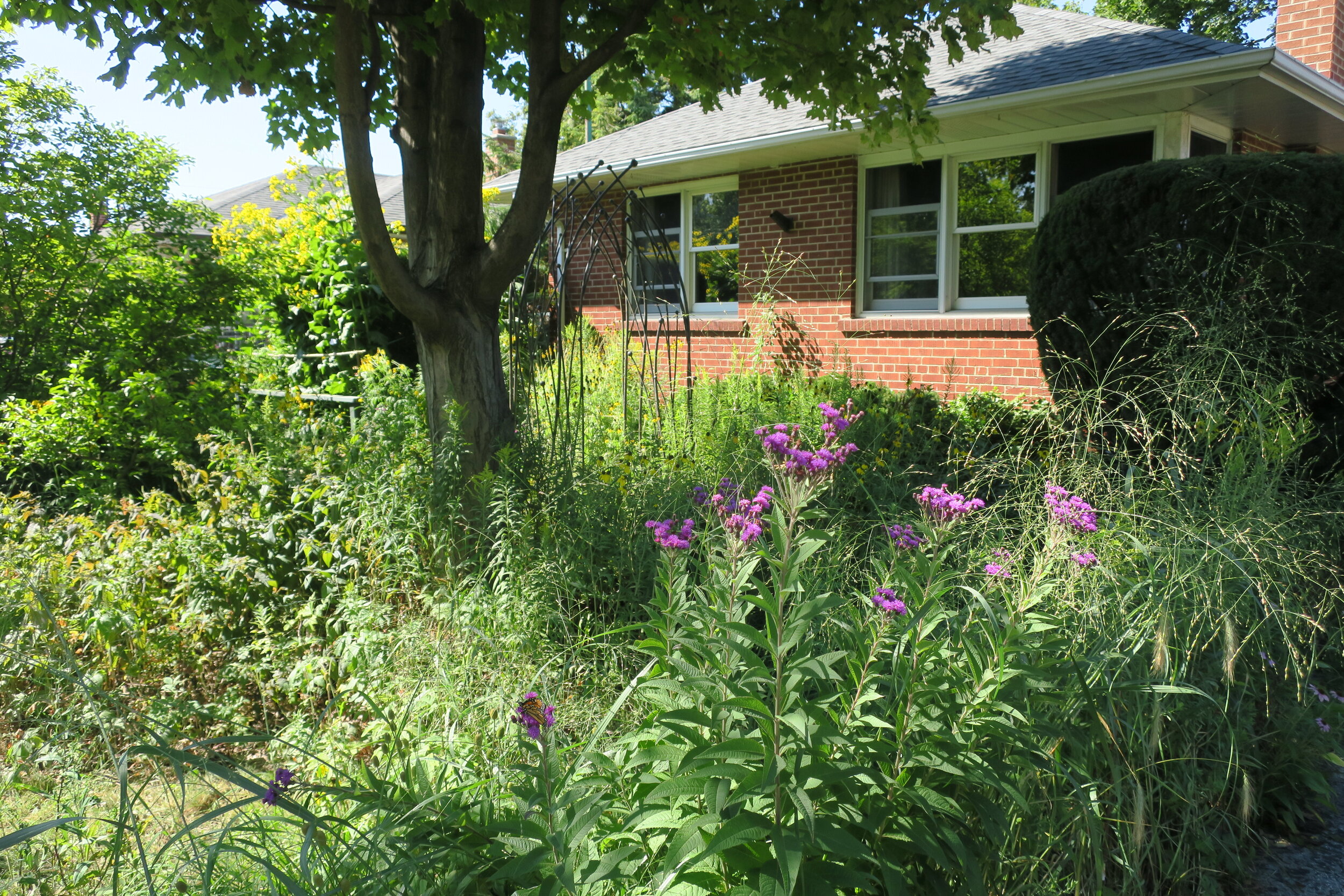After working intensely for the past year on advocacy efforts urging the City of Toronto to reform its grass and weeds bylaw, I have really mixed feelings about the changes that City Council passed today. There’s a good thing or two in the revisions Council passed (to take effect in 2022), but there are still lots of problems. The devil is in the details of enforcement, and I’m not optimistic, given the enforcement track record, but we’ll see.
First the good: the “Natural Garden Exemption” is no more! It was flawed from the beginning, when it first reared its ridiculous head decades ago. The definition of a “natural garden” made no sense whatsoever—what it came down to, basically, was that a garden became a “natural garden” when someone complained about it…And then you were forced to apply for an “exemption” to the grass and weeds bylaw and be inspected and approved, but the exemption offered no protection if someone complained again next year.
But the worst part was that “natural gardens” were treated as some strange, suspect category of garden that was somehow illegitimate and required approval and permission. Retrogressive in the extreme considering the climate emergency and biodiversity crisis.
So good riddance to the “Natural Garden Exemption.” Especially since the courts had already ruled (in the Sandy Bell case in the 1990s and the Douglas Counter case in the 2000s, both of which I sat in on and wrote about in books and articles) that people had the protected right to create a “natural garden” subject only to health and safety constraints, not aesthetics. So, no more delegitimizing and disincentivizing exemption, yay!
Toronto gardener Sandy Bell was given a $50 fine for this garden in the early 1990s. An inspector said it was “excessively too high.” She fought the fine in court, and the case forced the City of Toronto to change its grass and weeds bylaw to allow “natural gardens.” (Photo by Lorraine Johnson)
In the early 2000s, Douglas Counter defended his native plant garden (in the boulevard) right up to the Ontario Superior Court. (Photo by Lorraine Johnson)
Despite his court win, Douglas Counter was forced to defind his native plant garden yet again in 2019, when a City of Toronto inspector warned him in a letter: “Please be advised that an inspection was conducted yesterday…the property is indeed in violation.” (Photo by Lorraine Johnson)
Another good thing about the revised bylaw is that it now lists prohibited plants. Goodbye to the vague category of “weeds.” Hello clarity. People will know the species they’re not allowed to plant. And the list of those species is pretty short and reasonable—e.g., poison ivy, ragweed, some non-native species that cause harm in natural areas…The list is open to regular revision, too, so there could be some transparency (one hopes) and consultation (crucially, Indigenous consultation) in formulating prohibited species.
But…
The City has not set even a minimal bar before it investigates complaints, and that means the complaints system is ripe for abuse. A front yard full of vegetable plants, or a tall meadow free of prohibited plants and free of sightline obstructions? Totally legal under the revised bylaw, but your neighbour could make your life miserable with complaints, and you could be subject to Advisory Notices and Violation Notices and inspections where you are required to defend and justify your totally legal planting. It happens all the time now, and it’ll happen all the time under the revised bylaw.
Instead, there should be some kind of minimal screening done at the point of 311 complaint, even the simplest of questions: does the garden include prohibited plants? Are there health or safety issues such as obstructed sightlines? Questions like this would weed out complaints based on “I don’t like it” or “I don’t like you.”
Bottom line: the revised bylaw is still based on the premise that lawns are the approved, desired response to bare earth. How else to explain the fact that the revised grass and weeds bylaw has raised the maximum fine for grass over 20cm to $100,000?! Laughable if it weren’t so chilling.
So, what can people do to bring sanity to enforcement? If you or anyone you know receives an Advisory Notice or a Violation Notice for a yard or garden that isn’t causing any harm, make noise, spread the word, enlist allies, reach out to those, such as myself and many others , who will help you fight it and who will shine a light on all that is wrong with the enforcement regime we’ve still got with this revised bylaw.


